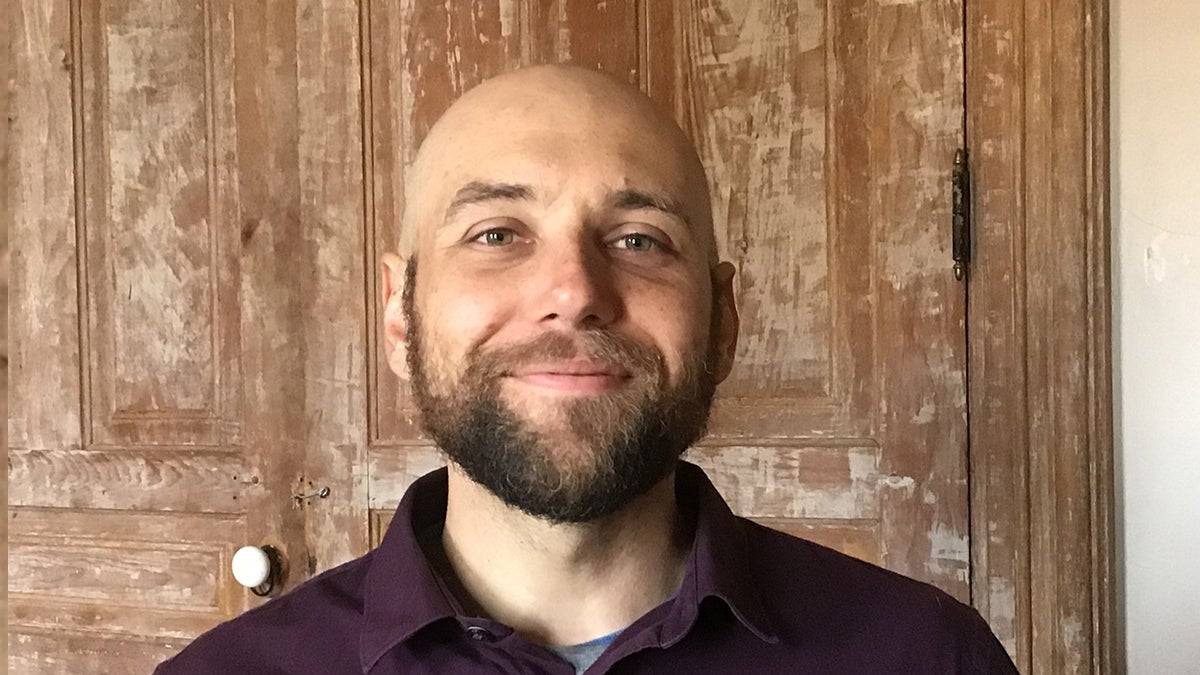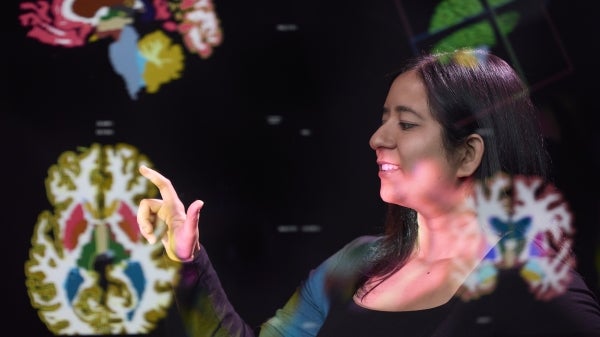From an online biochemistry degree to chasing a PhD

Paul Turack is graduating with a degree in biochemistry from the School of Molecular Sciences.
Editor's note: This story is part of a series of profiles of notable spring 2020 graduates.
Paul Turack is graduating with a degree in biochemistry from the School of Molecular Sciences. This year he was awarded the Distinguished Biochemistry Merit Award, which is presented to a graduating senior in recognition of an outstanding academic record in a biochemistry degree. As an online student living in St. Kitts Island, Turack has done an amazing job keeping up with his studies and work.
School of Molecular Sciences clinical assistant professor Ara Austin had this to say: “Paul is a dedicated student who overcame many obstacles to complete his degree in biochemistry at ASU. I am always impressed by Paul's ability to find a solution when all hope seems lost. For example, while living on St. Kitts Island, he managed to find one biochemist living there to gain the necessary research experience to pursue graduate school in the future. Students like Paul who have the persistence are the ones who later succeed in research, and I am excited to see what the future holds for him.”
Turack is a part of the School of Molecular Sciences online biochemistry program, the nation’s first online biochemistry program. Like many students who are pursuing their degree online, he has put in a tremendous amount of time and dedication to his studies. Although learning in a nontraditional classroom setting may come with difficulties and surprises, Turack has learned how to be a successful online student.
One challenge he faced as a rural online student was limited access to the internet. When the public libraries back home were shut down in response to COVID-19, it made it difficult for him to find adequate access to the internet to complete coursework. He ended up having to rent out a hotel room in the nearest city to be able to take his online exams. Though it was not the ideal situation for him, he figured out how to tackle the issue head on and went out of his way to make sure his work was complete. There is no doubt that this hardworking graduate will continue to thrive in his future endeavors with his great resilience and skills.
Question: Why did you choose ASU?
Answer: I chose ASU because ASU offers a fully online biochemistry program. I was able to conveniently complete my degree while living overseas.
Q: The best piece of advice you’d give to those still in school?
A: Be organized. Making lists of what I needed to do and when helped me immensely to get through school.
Q: Please share unique aspects of your college experience:
A: I am a nontraditional student. I taught philosophy and ethics courses for several years at the college level, and then I decided to radically switch fields and study biochemistry at ASU. The switch was instigated by recognition of a dearth of academic positions in the humanities, and few to no opportunities in the private sector for philosophers. Going back to college after a lengthy interim can be a challenge due to the concepts and methods one may have forgotten, but it certainly is doable!
Q: What are your plans after graduation?
A: I plan on studying biochemistry at the graduate level and am ultimately aiming at earning a PhD in biochemistry. I have an MA in history of philosophy and have already taught at the college level, but I feel like there are more opportunities for biochemists than philosophers in today's job market.
Q: Which professor taught you the most important lesson while at ASU?
A: Dr. Austin is a polymath. She was one of my organic chemistry instructors, she coached me on graduate school options, helped me to find research opportunities in ASU's labs, and lately helped me to resolve some internet access issues as a rural student previously reliant on public libraries for schoolwork. At her insistence I looked more into mobile hot spots and I honestly don't know that I'd be finishing my degree right now if it wasn't for her insight.
Written by Mariela Lozano Porras, School of Molecular Sciences communications assistant. Jenny Green contributed to the story.
More Science and technology

Podcast explores the future in a rapidly evolving world
What will it mean to be human in the future? Who owns data and who owns us? Can machines think?These are some of the questions…

New NIH-funded program will train ASU students for the future of AI-powered medicine
The medical sector is increasingly exploring the use of artificial intelligence, or AI, to make health care more affordable and…

Cosmic clues: Metal-poor regions unveil potential method for galaxy growth
For decades, astronomers have analyzed data from space and ground telescopes to learn more about galaxies in the universe.…